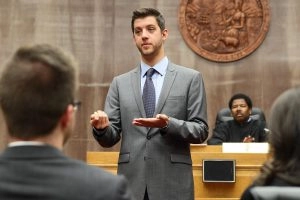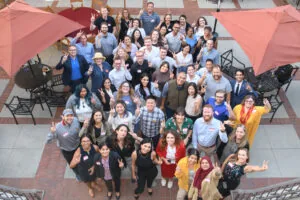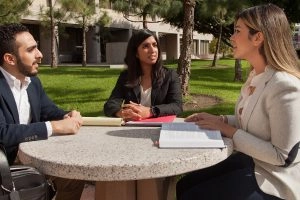Description
As the debate continues about who should vote, many insights can be drawn from the decades-long struggle to expand voting rights to women. In this intersectional conversation on the 19th amendment, leading women scholars — Sarah Banet-Weiser (London School of Economics), Ariela Gross (USC Gould School of Law), Allissa Richardson (USC Annenberg School for Communication and Journalism), Mindy Romero (USC Sol Price School of Public Policy), and Francille Wilson (USC Dornsife College of Letters, Arts and Sciences) — commemorate the milestone and examine its relevance to issues of equal rights today.
Who Will Benefit
– Those wanting to learn more about the media backlash to women’s suffrage and 19th amendment
– Those seeking to discover how the stalled enfranchisement of women has been upheld by the law
– Historians hoping to uncover the long-term effects legal policies have on voter underrepresentation
About Our Featured Faculty
Francille Rusan Wilson is an associate professor of American studies and ethnicity and history at USC. She is an intellectual and labor historian whose current research examines the intersections between Black labor movements, Black social scientists, and Black women’s history during the Jim Crow era. Her book, The Segregated Scholars: Black Social Scientists and the Creation of Black Labor Studies, 1890-1950, was awarded the Letitia Woods Brown Memorial Prize for the best book in African American women’s history by the Association of Black Women Historians. She co-curated “Rise Up LA: A Century of Votes for Women” at the Natural History Museum of Los Angeles County and was a member of the historians advisory board for the National Archives exhibit, “Rightfully Hers: American Women and the Vote.” Mayor Antonio Villaraigosa appointed Wilson to the Los Angeles Commission on the Status of Women in December 2007 and she was its president, 2009-2010.
Allissa V. Richardson is an assistant professor of journalism at USC Annenberg School for Communication and Journalism. She researches how African Americans use mobile and social media to produce innovative forms of journalism — especially in times of crisis. Richardson is the author of Bearing Witness While Black: African Americans, Smartphones and the New Protest #Journalism (Oxford University Press, 2020). Her research is informed by her award-winning work as a journalism innovator, and she is considered a pioneer in mobile journalism (MOJO), having launched the world’s first smartphone-only college newsrooms in 2010, in the U.S., Morocco and South Africa. Richardson holds a PhD in journalism studies from the University of Maryland College Park, a master’s degree in magazine publishing from Northwestern University’s Medill School and a bachelor of science in biology from Xavier University of Louisiana, where she was named a “Top 40 Under 40” alumna.
Ariela Gross, whose research and writing focus on race and slavery in the United States, teaches “Contracts,” “History of American Law,” and “Race and Gender in the Law” at USC Gould School of Law. Gross is the author, with Alejandro de la Fuente of Harvard University, of Becoming Free, Becoming Black: Race, Freedom, and Law in Cuba, Virginia, and Louisiana, which will be published by Cambridge University Press in January 2020. Her previous book, What Blood Won’t Tell: A History of Race on Trial in America, has won several awards, including the 2009 J. Willard Hurst Prize for the best book in sociolegal history from the Law and Society Association; the 2009 Lillian Smith Book Award for the best book on the South from the Southern Regional Council; and the American Political Association’s prize for the best book on Race, Ethnicity, and Politics. Gross received her BA from Harvard University, her JD from Stanford Law School, and her PhD in History from Stanford University. In 2010, she was appointed a distinguished lecturer by the Organization of American Historians. She joined the USC Gould School of Law faculty in 1996.
Mindy Romero is the founder and director of the Center for Inclusive Democracy (CID), which is part of the USC Sol Price School of Public Policy and is based in Sacramento, California. Romero is a political sociologist and holds a PhD in Sociology from the University of California, Davis. Her research focuses on political behavior and race/ethnicity, and seeks to explain patterns of voting and political underrepresentation, particularly among youth and communities of color in California and the U.S. Her research has been cited in major news outlets, including The New York Times, Washington Post, Los Angeles Times, Sacramento Bee, Politico and the Huffington Post. She has also been a frequent guest on National Public Radio, Capital Public Radio, and several other NPR-affiliated stations in California. She is a regular op-ed contributor to the Sacramento Bee and CalMatters. She is currently an adjunct fellow of the Public Policy Institute of California (PPIC) and former member of their Statewide Survey Advisory Committee. Romero is a member of the California Secretary of State’s Taskforce on the Voter’s Choice Act. She is the former chair of Mutual Housing California and former vice-chair of the Social Services Commission for the City of Davis.





